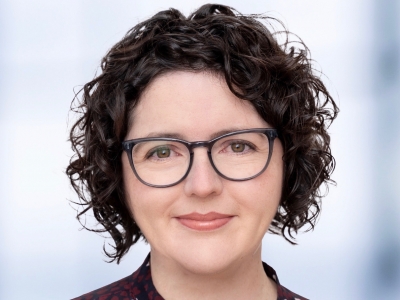Five FPA researchers have been chosen to receive highly competitive Insight Grants from the Social Sciences and Humanities Research Council (SSHRC), which provides multi-year funding for “the best Canadian research ideas that build on Canada’s deep, diverse base of research excellence”.
In the case of the Faculty of Public Affairs, those topics often touch on the issues of building better democracy, better societies, and informed citizenship.
The Faculty’s researchers are being recognized for their work investigating government decision-making, the role of the media, and the lessons of history in international relations.
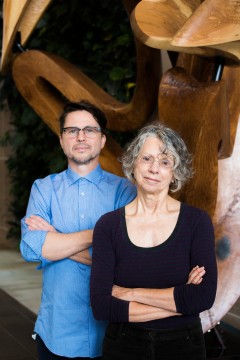 Michèle Martin, Professor Emeritus, School of Journalism and Communication, and Michael Lithgow, Course Lecturer and Researcher
Michèle Martin, Professor Emeritus, School of Journalism and Communication, and Michael Lithgow, Course Lecturer and Researcher
What role did amateur videos play in television news coverage of the Arab Spring protests? That’s the question Michéle Martin and Michael Lithgow are asking during their five-year long SSHRC project.
Martin and Lithgow will focus on news coverage of the Arab Spring from CBC, France 24 and Al Jazeera and how those news organizations used footage from amateur videographers. They will also be examining how proximity to the news location affected the coverage from these organizations.
“We were looking for an event where there seemed to be a lag between when events started happening on the ground and when these three media organizations and international media could get their own reporters on the ground,” explained Lithgow.
The research will also examine media content and labour and industry practices in relation to digital content and the use of amateur images. “We are focusing on television because television is one of the media that hasn’t been explored,” says Martin. “There is quite a bit about this kind of study for newspapers, but television is more difficult.”
Lithgow adds that the phenomenon emerged with “people who find themselves in spaces and places where there are events happening that the global media have an interest in. They are recording it using mobile technology and all of a sudden, there’s this pressure on commercial professional journalists to start accommodating this material that they can’t access otherwise.”
The research will run for five years. In addition to the publication of their findings, they will create an online hub that can facilitate conversations between amateurs and traditional journalists regarding the changes in news coverage. As part of this project, they will also organize a symposium that brings many players in the media industry together to exchange ideas about these issues.
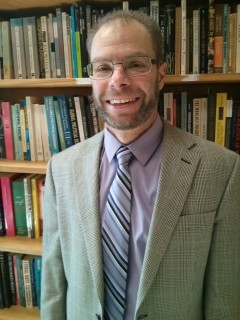 Brian Schmidt, Associate Professor of Political ScienceProfessor Schmidt’s research on the disciplinary history of International Relations builds directly on the work that he completed for his first book,The Political Discourse of Anarchy. His current project begins in the 1940s when the field of International Relations was in the midst of an identity crisis concerning its scope, subject matter and analytical focus. It was in this context that the quest for a theory of international politics began.
Brian Schmidt, Associate Professor of Political ScienceProfessor Schmidt’s research on the disciplinary history of International Relations builds directly on the work that he completed for his first book,The Political Discourse of Anarchy. His current project begins in the 1940s when the field of International Relations was in the midst of an identity crisis concerning its scope, subject matter and analytical focus. It was in this context that the quest for a theory of international politics began.
The primary purpose of Professor Schmidt’s research is to provide an accurate accounting of the field’s attempt to create a theory that would have both theoretical and practical purchase. A second, and closely related purpose, is to reflect on some of the issues and dilemmas that are involved when a social science such as International Relations attempts to acquire the authority of knowledge over a first-order practice such as politics.
While theory has been viewed as the main vehicle for establishing the cognitive authority of International Relations, there continues to be little consensus on the type of theory that would be needed to achieve this goal. “The Long Road to a Theory of International Politics” will reconstruct the conversation about theory that participants in the field have pursued from the 1940s to the present.
“The research findings will not only be of interest to those who identify with the field of International Relations, but will also have an appeal beyond academia,” said Professor Schmidt. “There have always been important links between the academic study of international politics and government officials involved in foreign policy.”
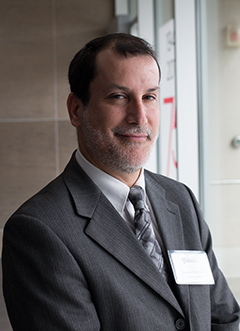 Stephen M. Saideman, Paterson Chair in International Affairs, Norman Paterson School of International Affairs (NPSIA)
Stephen M. Saideman, Paterson Chair in International Affairs, Norman Paterson School of International Affairs (NPSIA)
Professor Stephen Saideman remembers the moment when he was struck by the global differences in military oversight.
“In the course of interviewing a Canadian member of Parliament about the Afghanistan mission I asked whether he knew what the Canadian Forces’ rules of engagement were,” recalls Professor Saideman. “He said that he didn’t know because he didn’t have a security clearance, despite serving on the defence committee.”
Professor Saideman then raised the issue with former Prime Minister Paul Martin, who suggested he should compare Canada with countries like Australia and Great Britain rather than the U.S., where members of Congress and their staff have security clearances.
That conversation prompted Saideman to develop a multi-pronged research project to study the democratic control of the military in 15 countries. He and his colleagues will ask whether access to classified information affects the quality of oversight, as well as why some legislators seem to prefer to be ignorant critics rather than informed overseers.
Professor Saideman will be working with Philippe Lagassé at the University of Ottawa and David Auerswald at the National War College in Washington, D.C.
The group was awarded an SSHRC Insight Grant for $250,000 for up to five years.
Lynda 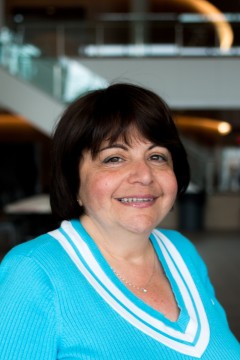 Khalaf, Professor, Department of Economics
Khalaf, Professor, Department of Economics
Bubbles, crashes and crises: the effects of these all-too-familiar phenomena ripple across the economy and through every sector of society. They are events that financial experts are anxious to predict and policy-makers are anxious to avoid, and to do this, economists turn to the key discipline of econometrics.
“In econometrics, statistical methods are used to test and verify economic models and theories,” explains Lynda Khalaf, who was awarded an Insight Grant along with long-time fellow researchers Jean-Marie Dufour of McGill University – one of Canada’s leading econometricians – and Marie-Claude Beaulieu of Université Laval. Khalaf will embark on a five-year study titled “Errors in variables, time-varying parameters, and simulation-based inference: Robust tools for dynamic models and financial analysis.”
“Economies are complex systems, and to develop reliable economic models, we need tools that can incorporate a large number of variables,” says Professor Khalaf. “As well, we test the tools using very large real-life data sets – what is now called Big Data. Computer simulations are an essential component of our work.”
Professor Khalaf’s team sees shortcomings in current methodologies, and their first focus is to prove that existing tools are not reliable. Then, using an interdisciplinary approach, they will aim to create new tools.
“Collaboration across disciplines is the way of the future,” Khalaf states. “In our research, Big Data statisticians will be working with computer scientists to find out how we can improve our use of computing tools to control for uncertainty.”
As she points out, this is research with strong empirical implications. “When you can quantify error margins, your predictions become more credible. For a commodity-driven economy like Canada’s, being able to estimate asset prices and measure volatility accurately is extremely important.”
Monday, December 14, 2015 in Celebrating Excellence, Groundbreaking Research, News, Research
Share: Twitter, Facebook



